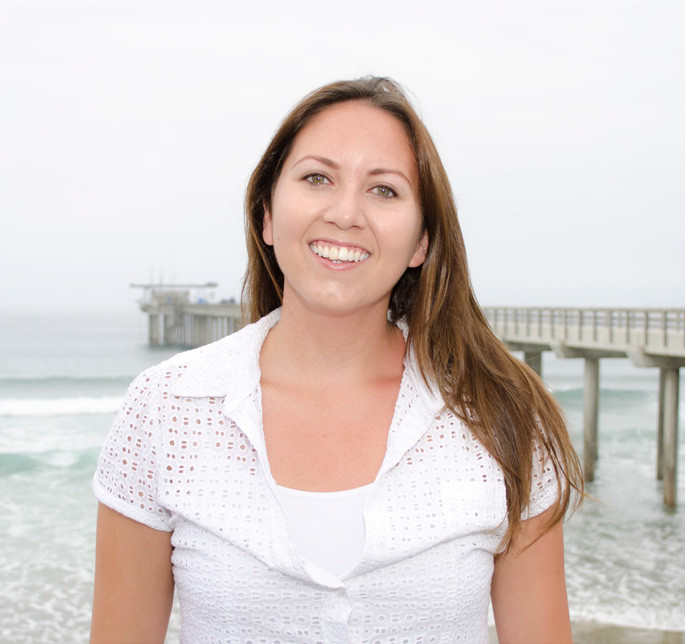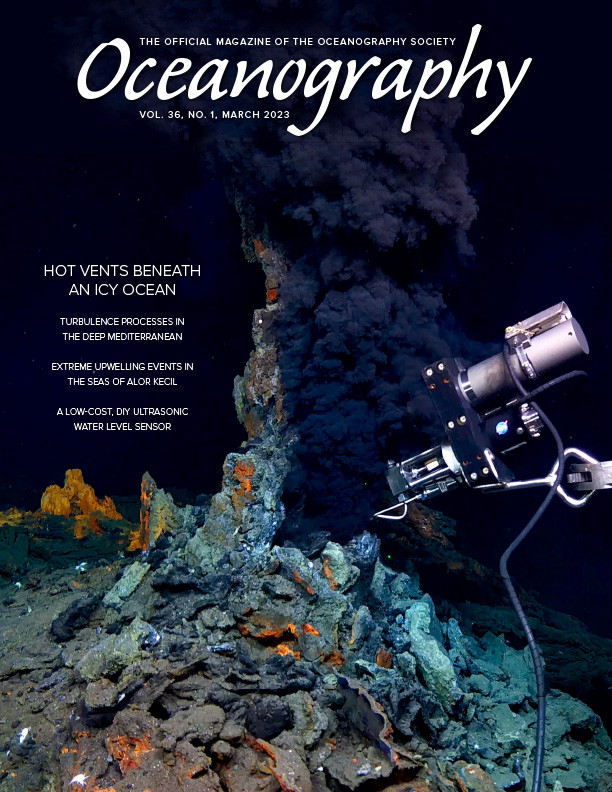Full Text
 |
Angelica Rodriguez, Research Scientist, NASA Jet Propulsion Laboratory, California Institute of Technology
Degree: When, where, what, and what in?
In 2013, I earned a bachelor of science degree in physics with a specialization in Earth science and a minor in environmental systems from the University of California San Diego (UCSD). I completed a master’s degree in 2014, and a PhD in 2019, in oceanography at Scripps Institution of Oceanography, UCSD.
Did you stay in academia at all, and if so, for how long?
From 2019 to 2021, I held a postdoctoral scholar position with the Center for Climate Change Impacts and Adaptation at Scripps. During that time, I also taught classes for the climate change studies and environmental systems programs at UCSD and worked on furthering justice, equity, diversity, and inclusion initiatives at Scripps.
How did you go about searching for a job outside of the university setting?
My career exploration began early on in my graduate school education. I always took advantage of career informational sessions held with government partners and industry. I also attended courses and workshops with the UCSD Career Center and Teaching and Learning Commons in order to better understand my personal values, as well as how to articulate my skillset and connect it to paths outside of academia. Some of the most helpful things I gained from these activities were a clear vision of what I was looking for in a job and how much my passions and goals actually did align with a career in science. Moreover, I grew my network beyond my lab and cohort to include people who were willing to have discussions with me, review my application materials, and provide personal recommendations for roles outside of academia.
I learned about the Naval Research Enterprise Internship Program (NREIP) through an informational session organized by my department and used this as a pathway to engage a lab at the Naval Information Warfare Center Pacific (NIWC) that was conducting field research relevant to my doctoral research. Fortunately, my advisor was very supportive of me participating in the internship and leading a collaborative project that turned into my final dissertation chapter.
Is this the only job (post-academia) that you’ve had? If not, what else did you do?
No, this is my second position outside of academia. During my postdoc, I was recruited to a permanent position as a scientist with NIWC, which preceded my current position at the Jet Propulsion Laboratory. While at NIWC, I was immersed in new technical areas, including marine robotics and autonomy, and had the chance to learn first-hand about technology development and transition, as well as how funding works at government labs. Skills gained in that position that I use in my current role relate to project management, funding acquisition, and user-focused product development.
What is your current job? What path did you take to get there?
My current position is Research Scientist with the NASA Jet Propulsion Laboratory (JPL) California Institute of Technology Sea Level and Ice Group. I focus on sea level science and coastal ocean dynamics. While some of my projects are applied in nature, I now do basic research again through NASA-funded projects. This position was competed at an international level, so there were many components to the application and hiring process. It was similar to an academic hiring process in that it involved a research statement, panel interviews, and a research seminar.
What did your oceanographic education (or academic career) give you that is useful in your current job?
My research, public engagement, and teaching training are critical to my current role. In my position, I primarily develop hypothesis-driven research questions and propose and carry out tasks that advance sea level rise preparedness. I also work on a few collaborative projects with external organizations, including some centered around sea level rise education and partner engagement. I lean heavily on my experience as a postdoc for these types of interactions.
Is there any course or other training you would have liked to have had as part of your graduate education to meet the demands of the job market?
As mentioned above, I took advantage of a lot of training opportunities while in grad school. In addition to those, it probably would have been beneficial to have formal training in agile project management and software development practices.
Is the job satisfying? What aspects of the job do you like best/least?
Though I am only in my fourth month in this role, I’m finding it quite well suited to my interests and scientific background. My colleagues have been incredibly supportive and helpful in getting me integrated into the organization. Unlike many of the scientists at JPL, I have not been in the NASA research community for the duration of my career, so there is some spin-up that comes with understanding the nuances of the mission and structure. Despite this, I feel that I am able to bring a critical perspective to my current project teams and the future research directions of my group.
Do you have any recommendations for new grads looking for jobs?
First and foremost, I recommend not waiting until you are ready to graduate to think about what comes next. It is very easy to get singularly focused on research, but developing clarity about the type of career you want and starting dialogue about your trajectory with your research advisor and committee members as soon as possible is a good thing to do. While not all professors are open to supporting non-academic paths, I’ve found that most are, as the landscape of scientific positions is quickly evolving from the traditional model. Additionally, it’s important to seek out a diverse network and a set of mentors who can advise and guide you along the way. Lastly, keep in mind that there is something to be learned from every academic and professional experience. It will help you in the long run to take the time to reflect on what these take-aways are so that you are able to articulate them to future employers.

